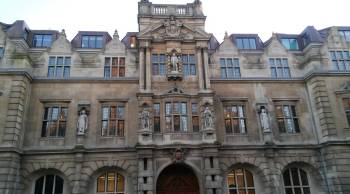Our guest blogger for the Fourth of July weekend is Hussein Samatar. He fled Somalia’s civil war some two decades ago. The youngest of five children, he graduated from Somalia’s National University in 1991 with plans to be an economist. But four days after Samatar graduated from college the country erupted into civil war. He became a refugee in a camp in Kenya and in 1994 he settled in Minnesota. He got an MBA from St. Thomas University, worked as a commercial banker at Wells Fargo and Norwest Banks. and then founded the African Development Center. It helps helps refugees start their own businesses.
Last year Samatar won election to the Minneapolis school board, perhaps the first Somali-American to hold public office in the nation. You can read more about his experiences coming to America here.
Hussein Samatar: America is not perfect country. The financial gap between the “haves” and “have-nots” continues to grow and put pressure on the cohesion and fabric of the nation. But (and this is a big “but”) the United States of American is still a beacon of hope for many people throughout the world, including those coming from every part of the globe to willingly call themselves new Americans and join the many who arrived before them to make the USA their home.
As a new American, one thing that is not mentioned when you take the oath to become a citizen of this nation is that your new personal portion of the national debt is around $35,000. Of course, you obviously had very little to do with the creation of this debt and may not even agree on how or why it came about. However, this is the reality of our country, and I often joke that as part of the ceremony and festivities of becoming a full-fledged member of the country, a new American should receive both the Naturalization Certificate as well as a Promissory Note indicating his or her portion of the national debt.
Our national debt is staggering and it will limit all of our future economic opportunities if it is not properly addressed. The future prosperity all Americans, including the newly arrived and their children, is threatened by this fact. This is not a new issue for most new Americans, as many are coming from countries where a high national debt has limited economic growth and allowed economic policies to be dictated by foreign bond holders. For obvious reasons, this is a frightening prospect for new citizens looking for a better life.
Another concern regarding financial issues in the United States of America is that, although the importance of the economy and market-based factors is stressed, rarely are financial education and money management issues taught, discussed, and are elevated to useful level of importance. This is easily seen by anyone who takes a look at personal finance curriculum in our high schools.
We here the African Development Center of Minnesota (ADC) have been working with motivated and eager New Americans to start businesses, sustain them, and build wealth over time. The philosophy of our organization is that no one creates wealth without work, and that jobs are created in the private sector. Therefore, it is imperative that as different levels of government work to instill economic development, they understand their limitations and take the necessary steps to create an environment that is conducive to the creation of businesses and jobs.
ADC also focuses on the importance of financial education in helping new Americans to understand the culture of money in the United States. Our experience is that many of those we work with are able to successfully utilize great aspects of their own culture, including the discipline to save and be frugal. New Americans have been a tremendous asset in reviving and revitalizing many of the declining commercial corridors throughout the state of Minnesota and elsewhere in the country.
Finally, it is not all about businesses and wealth building. It is also about appreciating the work and sacrifices of the many populations of Americans that came before us, and to become civically engaged in the political life our new country in order to make it better for the many generations to come. The United States of America is blessed, but we will only maintain our prosperity as long as we work to find ways of dealing with our national debt and welcome the new Americans who are willing to work and strive to keep this nation as a beacon of hope and example of greatness.
There’s a lot happening in the world. Through it all, Marketplace is here for you.
You rely on Marketplace to break down the world’s events and tell you how it affects you in a fact-based, approachable way. We rely on your financial support to keep making that possible.
Your donation today powers the independent journalism that you rely on. For just $5/month, you can help sustain Marketplace so we can keep reporting on the things that matter to you.


















